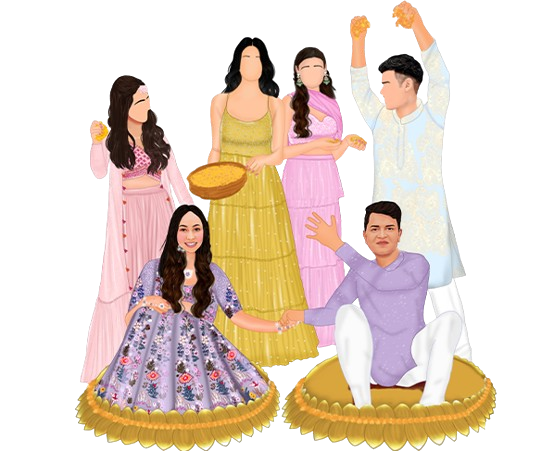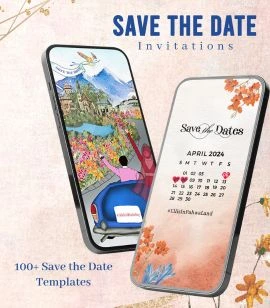Advertisement
By IS Team
Top Trends In Wedding Invitation Sizes For 2024
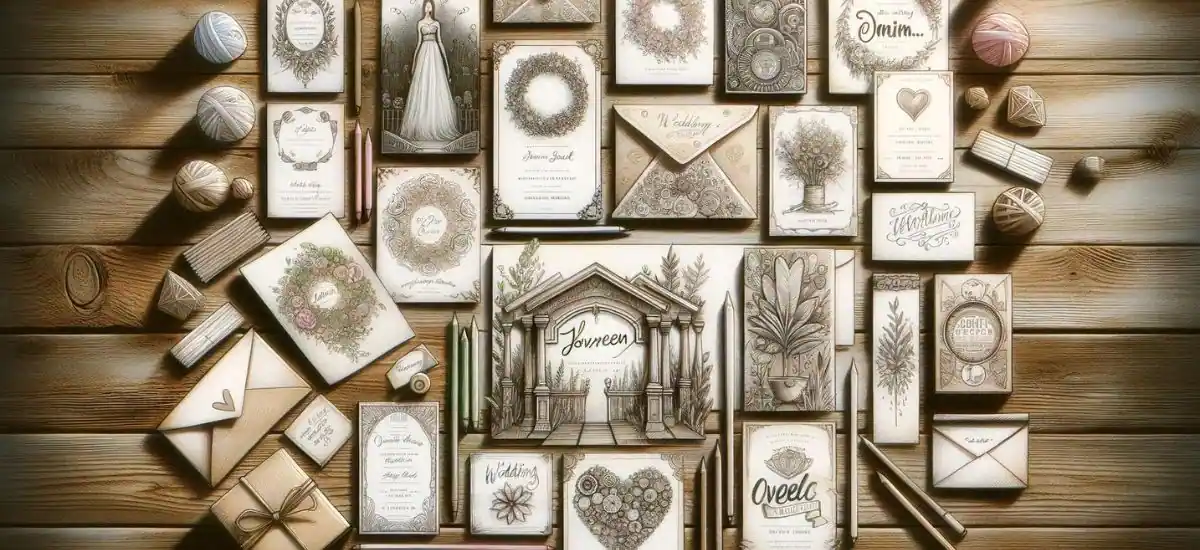
Advertisement
When choosing what size are wedding invitations, it's essential to consider both tradition and current trends.
Traditionally, sizes like A7 (5 x 7 inches) are popular for their practicality with mailing and postage. However, in 2024, there's a noticeable shift towards both larger, more decorative invites and smaller, eco-conscious options.
Whether you opt for a minimalist design or an oversized statement piece, the size of your invitation should reflect the unique style and theme of your wedding, ensuring it aligns perfectly with your tastes and the overall tone of your celebration.
Current Standards in Wedding Invitation Sizes
Advertisement
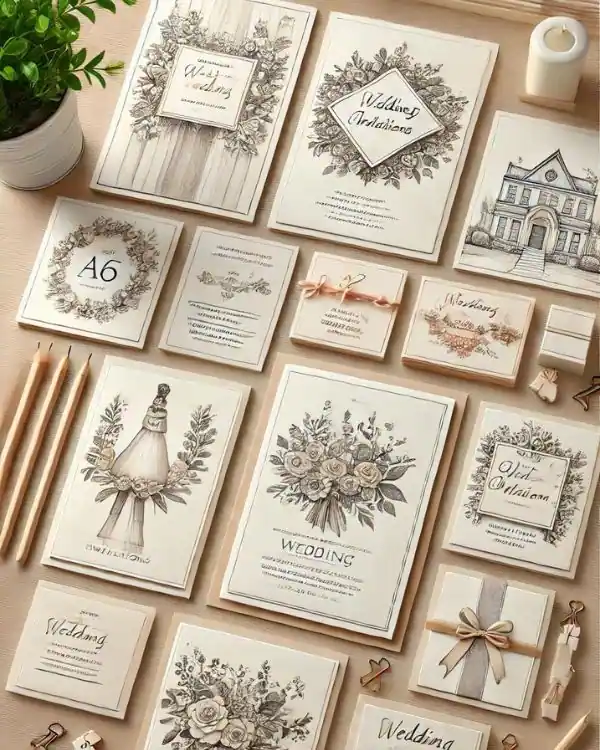
Choosing the right size for your wedding invitations is a key decision. Traditionally, A7 (5 x 7 inches), A6 (4.5 x 6.25 inches), and Square (5.25 x 5.25 inches) have been popular choices due to their practicality for mailing at standard postage rates.
In 2024, however, there’s a noticeable trend towards both larger and uniquely shaped invitations, as well as smaller, eco-friendly options. These changes reflect a shift towards more personalized and sustainable wedding elements.
Whether aiming for a bold statement or a nod to environmental consciousness, the trend is towards selecting sizes that not only stand out but also align with personal values and aesthetics.
Emerging Trends in Wedding Invitation Sizes for 2024
- Minimalist Sizes
Minimalism is taking center stage in 2024. Smaller, more streamlined designs are not only chic and modern but also cost-effective and environmentally friendly. These compact invites pack a stylish punch without wasting resources—perfect for eco-conscious couples.
- Oversized Invitations
On the other end of the spectrum, oversized invitations are making a bold statement this year. Ideal for a grand, luxurious wedding, these larger-than-life invitations are designed to awe and inspire your guests, setting the stage for an unforgettable celebration.
Influence of Digital Innovations on Physical Invitation Sizes
Advertisement
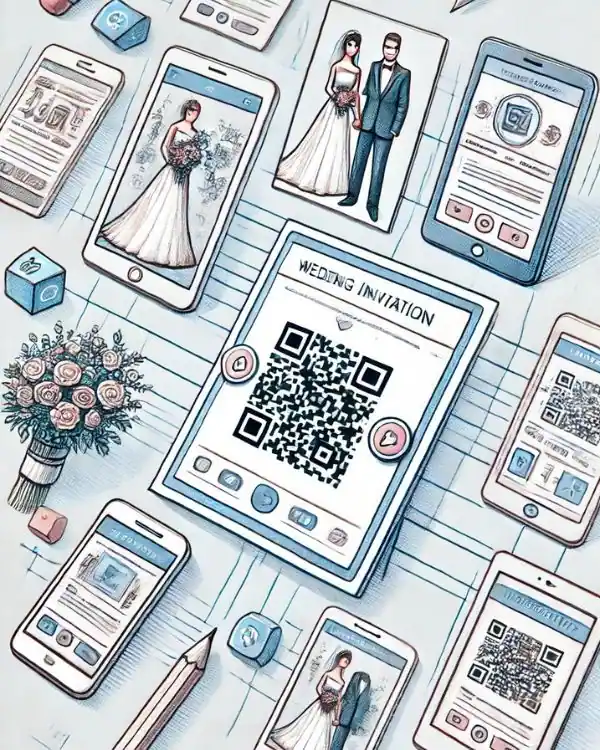
The digital age has profoundly impacted the design and size of wedding invitations, making them more adaptable and interactive for guests.
- Integration of QR Codes
Incorporating QR codes into wedding invitations is a trend that significantly influences both the design and the size of these invites.
These codes allow guests to seamlessly access a wealth of details about your special day, such as directions, schedules, and registry information, with just a simple scan. This integration often allows for a more streamlined design, potentially reducing the physical size of the invitation while enhancing its functionality.
It’s a modern solution that adds a layer of convenience and interaction to the traditional invite.
- Compact Designs for Digital Compatibility
As more guests use social media to celebrate and share moments from special events, there's a growing trend towards creating invitations that are optimized for digital sharing.
This means designing invites that not only look good in person but also photograph well and fit perfectly within the confines of digital screens. These compact and visually appealing designs ensure that when an invitation is shared online, every detail looks clear and attractive, enhancing the digital presence of your wedding day.
These digital innovations are reshaping how invitations are crafted, merging traditional elegance with modern technology to meet the expectations of today’s digitally savvy couples and their guests.
Eco-Friendly Size Trends
As environmental awareness increases, eco-friendly practices are becoming a key consideration in wedding planning, particularly in the choice of invitation sizes and materials.
- Smaller, More Sustainable Options
Many couples are now opting for smaller invitations to reduce waste. This trend not only minimizes the use of paper but also reflects a broader commitment to sustainability. Smaller invitations are seen as a practical and thoughtful way to communicate the importance of environmental consciousness to guests. These compact sizes are not just about using less material; they also involve smarter, more efficient design layouts that maintain aesthetic appeal while being ecologically responsible.
- Use of Recycled Materials
The choice of materials plays a crucial role in both the environmental impact and the design of wedding invitations. Recycled paper is increasingly popular, as it offers a tangible way to lessen the environmental footprint of your event.
This material choice often influences the overall size and texture of the invitation, as recycled paper has unique qualities that can enhance the design.
Using recycled materials can sometimes lead to slightly larger sizes due to the paper's different handling properties, but this is a trade-off many environmentally conscious couples are willing to make for the sake of sustainability.
These eco-friendly trends in invitation sizing and material selection are not just about making greener choices; they're about making a statement on your big day that reflects your values and encourages others to think about their environmental impact.
Cultural Influences on Invitation Size
Advertisement
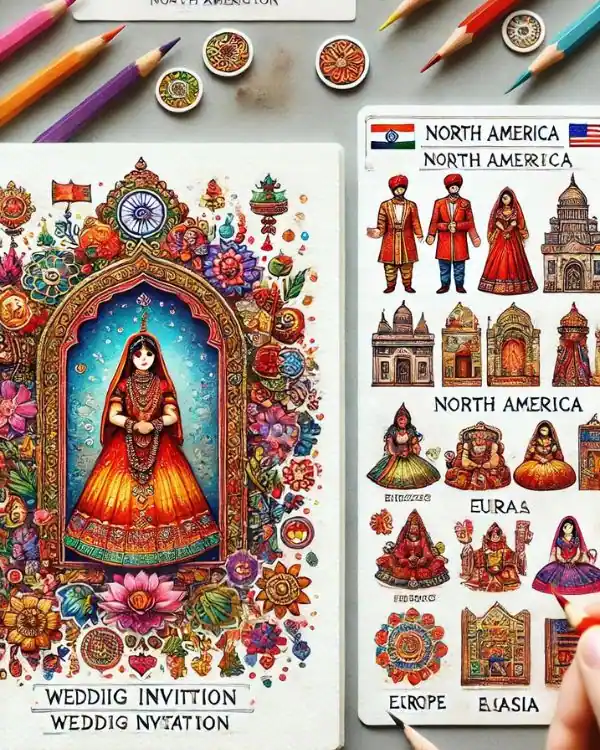
Wedding invitations reflect the cultural heritage and personal styles of the couples, with cultural and regional norms significantly shaping their size and design.
Advertisement
- Multicultural Wedding Invitations
Multicultural weddings often blend elements from different traditions, influencing the size and style of invitations. For example, a mix of Indian and American traditions might result in a larger invitation to include details about multiple ceremonies, combining design elements that honor both cultures.
- Regional Trends in Invitation Sizes
Invitation sizes vary across regions, reflecting local customs:
- North America: Typically features smaller, concise invitations.
- Europe: Often sees moderately sized invitations with elaborate designs, particularly in countries with a strong artistic heritage like Italy and France.
- Asia: Larger invitations are common, especially in China and India, where they may include multiple pages for extended celebrations.
These variations show how wedding invitations are not just practical items but are deeply personal and culturally significant.
Personalization and Customization Trends
As weddings become more personalized, couples are choosing invitation sizes and designs that reflect their unique themes and personalities, moving beyond traditional norms.
- Tailored Sizes for Unique Themes
Customization allows couples to tailor invitation sizes specifically to their wedding themes.
Whether it’s a rustic outdoor wedding requiring a more casual, handcrafted size, or a glamorous ballroom event calling for a larger, more ornate invitation, the size can significantly enhance the thematic experience.
This trend of custom-sizing ensures that every aspect of the wedding, starting with the invitation, is a reflection of the couple’s unique story and style.
- Innovative Shapes and Folds
Beyond traditional rectangles, modern couples are exploring innovative shapes and folds in their invitations. Circular, triangular, or origami-style folds are gaining popularity, providing a memorable first impression and a unique tactile experience for guests.
Advertisement
These creative invitations stand out, not just for their visual appeal but also for their ability to engage recipients more interactively and surprisingly.
These trends in personalization and customization highlight how couples are using invitations not just to inform but to express their individuality and creativity, making each invitation a personal token of their upcoming celebration.
Cost Considerations
Advertisement
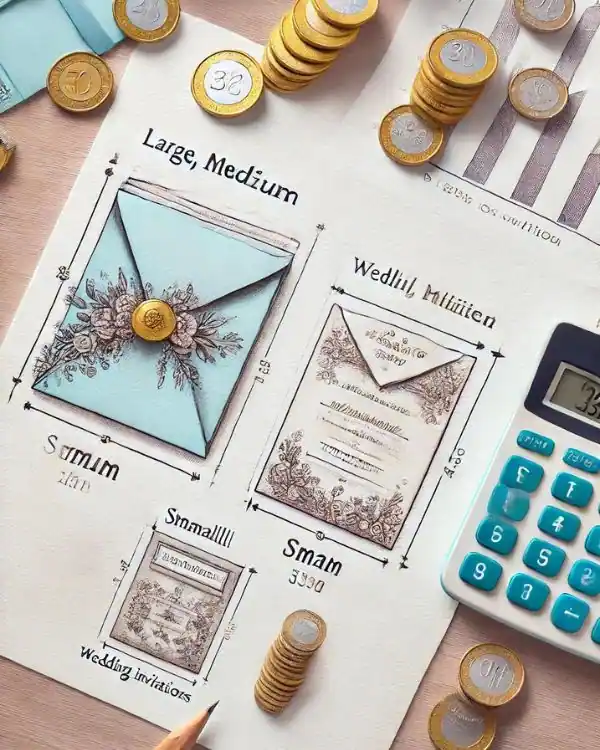
Understanding how invitation size affects costs is crucial for budget-conscious planning. Here’s how to manage expenses effectively.
- Cost Impact of Different Sizes
The size of your invitation directly influences printing, materials, and postage costs. Larger invitations typically require more expensive materials and higher postage fees due to increased weight. Smaller invitations, however, are generally more cost-effective, saving on both materials and shipping.
- Budget-Friendly Size Choices
Opting for standard sizes like A2 or A6 can be economical. These sizes are commonly available, which can reduce custom-cutting costs and allow for efficient bulk printing.
Additionally, choosing simpler designs without excessive embellishments can keep printing costs low. For casual events, consider digital invitations to cut down on physical material costs altogether.
By focusing on these cost considerations, you can allocate your budget more effectively across other important wedding details.
Frequently Asked Questions
Can wedding invitations be sent digitally, and are there size considerations for digital formats? Yes, digital wedding invitations are an increasingly popular choice. The size for digital invites usually corresponds to standard screen resolutions to ensure they display correctly on devices, making them typically smaller and more versatile.
How far in advance should I send out my wedding invitations? Wedding invitations should generally be sent out 6 to 8 weeks before the wedding. If it's a destination wedding or during a busy holiday season, consider sending them 3 months in advance to give guests more time to arrange travel and accommodations.
Are there any color trends for wedding invitations in 2024? In 2024, earth tones and pastel colors are trending. These colors not only reflect a chic and modern aesthetic but also align with the increasing preference for natural and sustainable wedding elements.
What is the best way to track RSVPs with different invitation sizes? Regardless of the invitation size, including a response card or a digital RSVP option via a QR code or a website link is effective. These methods help manage guest counts efficiently and can be tailored to match the invitation design.
Advertisement
I'm Looking For!
